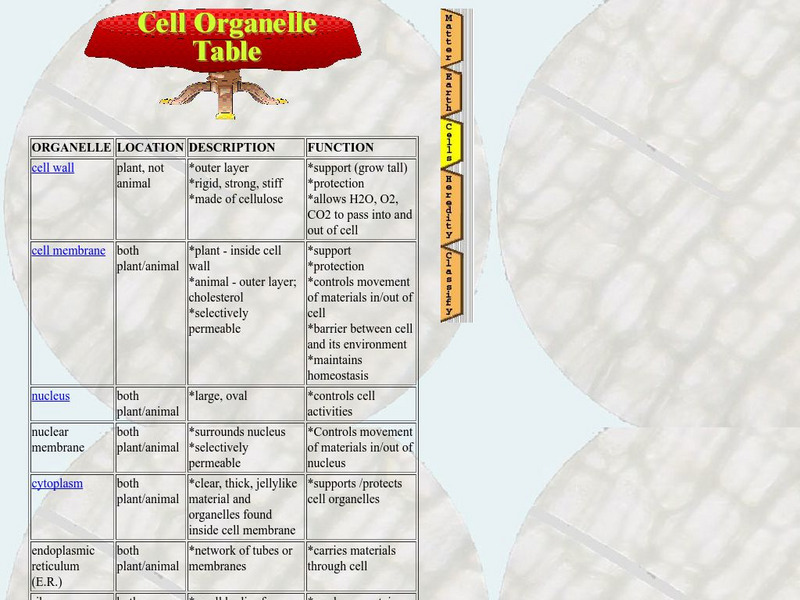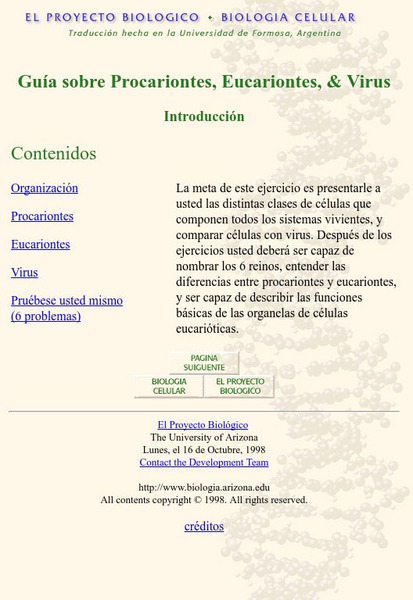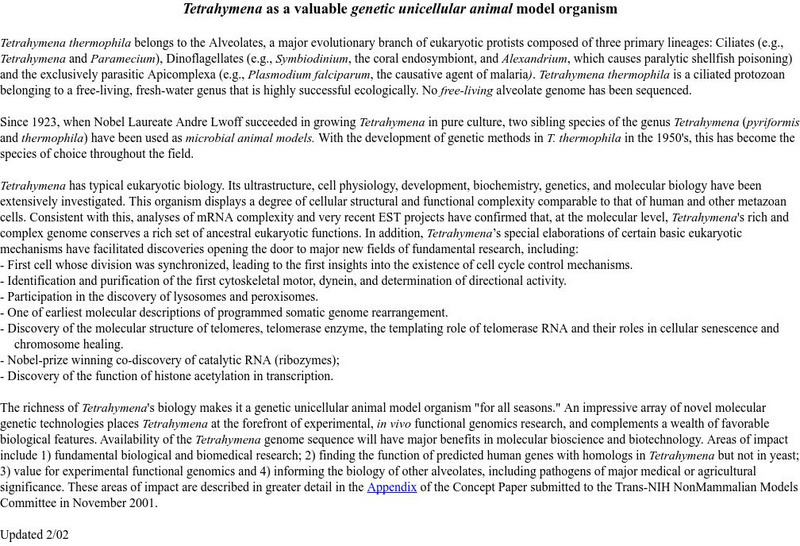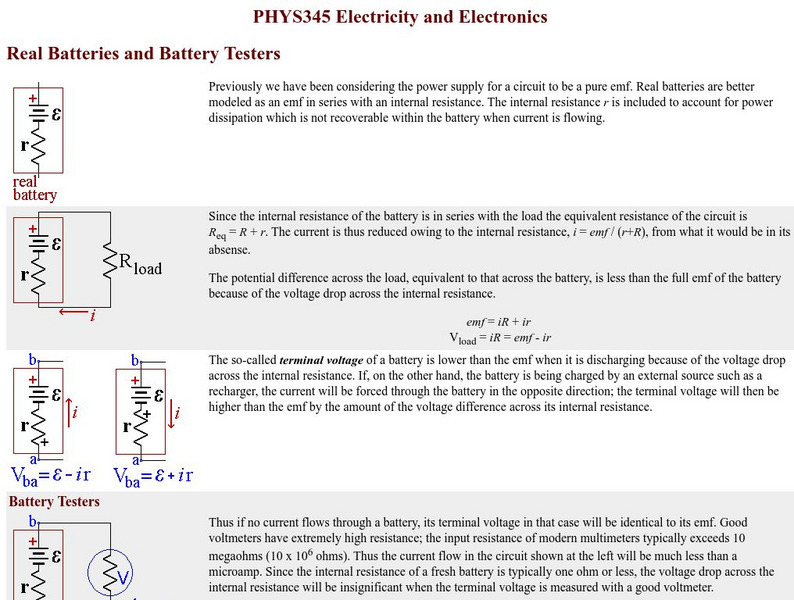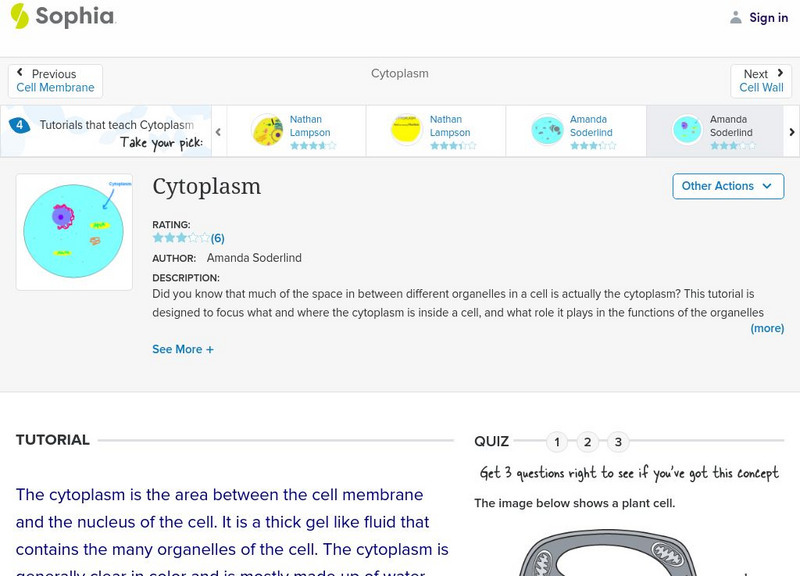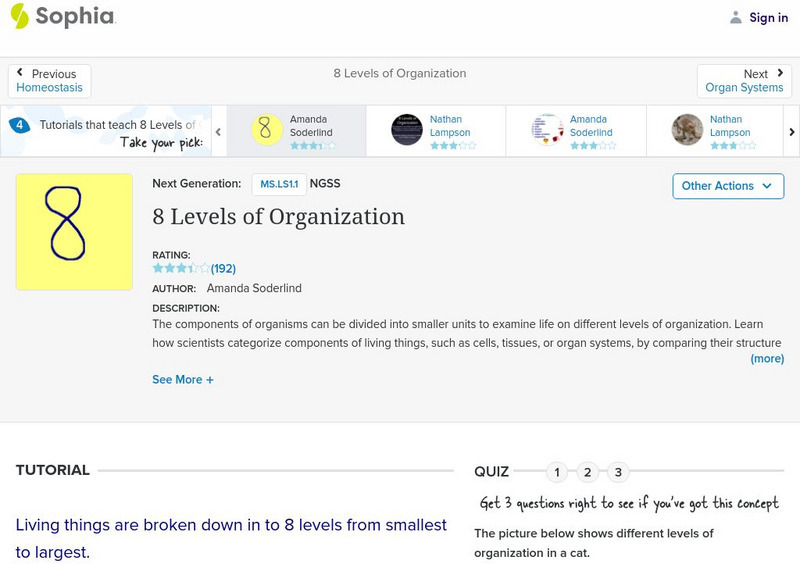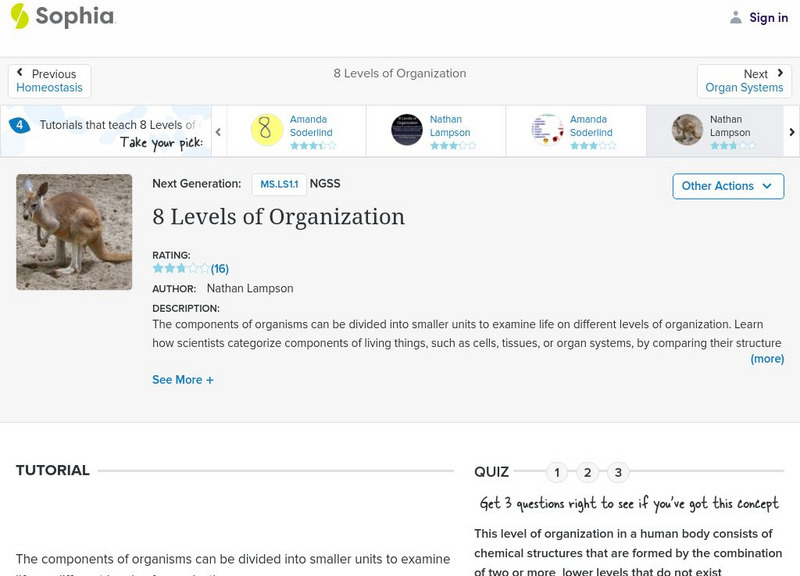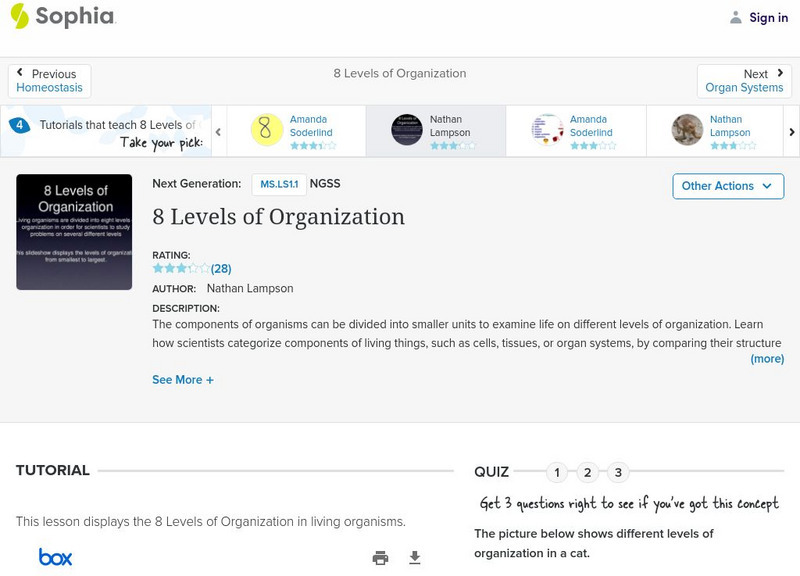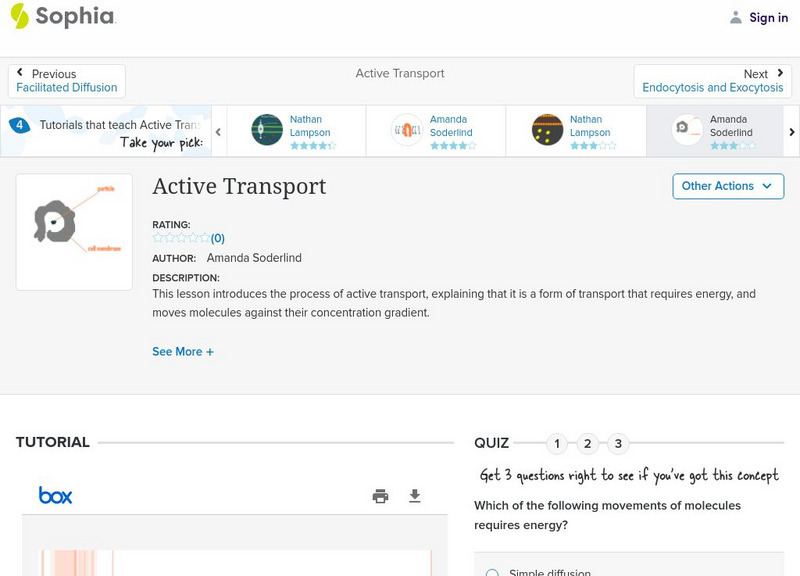Utah State Office of Education
Utah Science: Cell Organelle Table
A complete table identifying cell organelle, their location, a description, and function. Click on the hyperlinks for more detail to the specific organelle.
Utah State Office of Education
Utah Science: Introducing Cells!
Get to know cells, what they create, how to identify them, and how to tell whether they belong to a plant or an animal. Several activities
CK-12 Foundation
Ck 12: Life Science: 2.16 Cellular Respiration Process
Explore the specific reactions that happen during the cellular respiration process.
CK-12 Foundation
Ck 12: Life Science: 2.15 Cellular Respiration
Learn about the process of cellular respiration in the human body.
Other
Nearpod: Spreadsheets: Using Formulas
In this lesson on spreadsheets, students explore the different parts of a spreadsheet and use equations within spreadsheets to learn about their applications.
ibiblio
Ibiblio: The Virtual Cell: Cell Biology
In this interactive site, you are presented with a picture of a cell and a description of the structure and function of the parts of the cell. Pictures are colorful and the explanations are short but informative.
City University of New York
Brooklyn College: The Cell Cycle: Naming the Parts
Use this information to help you understand the differences between major parts of the cell cycle. A good place to start a study of cell division.
Biology 4 kids
Biology4 Kids: Quiz: Animal Systems
Take this ten-question review quiz over animal systems. Read more about each question after an incorrect answer is given.
University of Arizona
University of Arizona: Guia Sobre Procariontes, Eucariontes &Virus
This exercise is to introduce you to the kinds of cells that make up all living systems, and to contrast cells with viruses. At the end you can test your understanding of these topics by taking a short test.
Science and Mathematics Initiative for Learning Enhancement (SMILE)
Smile: Electrochemistry
A teacher lesson plan which could be easily converted into an idea for a student project or presentation. This page describes activities in which the interconversion of chemical and electrical energy are investigated. Complete activity...
University of California
Tetrahymena as a Unicellular Model Organism
Information on Tetrahymena thermophila and why it is an important unicellular organism.
Other
Univ.of Delaware: Real Batteries and Battery Testers
A discussion of various principles related to voltage. The operation of battery testers and voltmeters are explained. The importance of the internal resistance of a power source is discussed.
Sophia Learning
Sophia: Cytoplasm: Lesson 2
This lesson will discuss the structure and function of the cytoplasm. It is 2 of 5 in the series titled "Cytoplasm."
Biology 4 kids
Biology4 Kids: Prokaryotes Missing a Nucleus
What is the cell structure of a prokaryote? Check out these cells with unorganized nuclei featured.
Biology 4 kids
Biology4 Kids: Eukaryotes Cells With Parts
Young researchers will discover many facts about eukaryotes.
Sophia Learning
Sophia: 8 Levels of Organization: Lesson 2
This lesson will show the 8 levels of organization in living organisms, ranging from smallest to largest. It is 2 of 4 in the series titled "8 Levels of Organization."
Sophia Learning
Sophia: 8 Levels of Organization: Lesson 4
This lesson will show the 8 levels of organization in living organisms, ranging from smallest to largest. It is 4 of 4 in the series titled "8 Levels of Organization."
Sophia Learning
Sophia: 8 Levels of Organization: Lesson 1
This lesson will show the 8 levels of organization in living organisms, ranging from smallest to largest. It is 1 of 4 in the series titled "8 Levels of Organization."
Sophia Learning
Sophia: Active Transport: Lesson 4
This lesson introduces the process of active transport, explaining that it is a form of transport that requires energy, and moves molecules against their concentration gradient. It is 4 of 4 in the series titled "Active Transport."
Sophia Learning
Sophia: Active Transport: Lesson 1
This lesson introduces the process of active transport, explaining that it is a form of transport that requires energy, and moves molecules against their concentration gradient. It is 1 of 4 in the series titled "Active Transport."
ClassFlow
Class Flow: The Parts of the Microscope
[Free Registration/Login Required] Following the lesson, students will be able to identify the different parts of a microscope.
Cells Alive
Cells Alive!: Cell Gallery
This gallery shows pictures of a variety of cell types with hyperlinks to additional information about cells. Very interesting pictures.
ClassFlow
Class Flow: Cell Mitosis
[Free Registration/Login Required] This is a flipchart that goes through the stages of cell mitosis. The students will have the opportunity to view websites on cell mitosis. Students can also match the stages of mitosis with their...
ClassFlow
Class Flow: Cell Organelles
[Free Registration/Login Required] The students have to drag the different cell organelles into the cell. The activity is a fun and engaging way to help students remember the main cell organelles.


